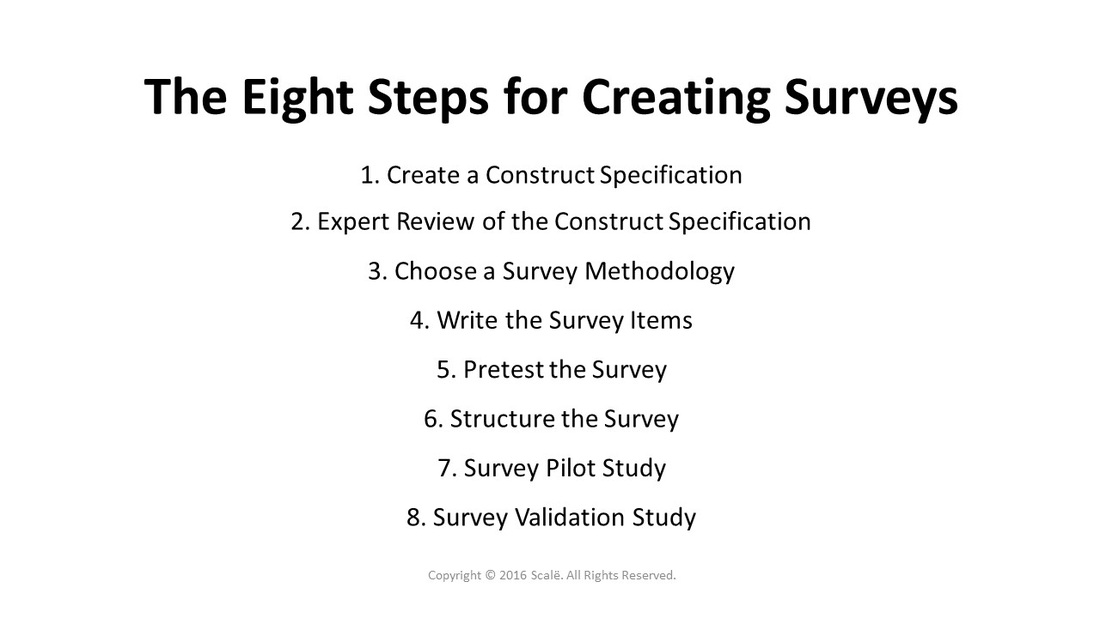Surveys
The Surveys decision tree will present the steps for creating a reliable and valid survey
Surveys are often used to collect large amounts of data in a really quick time frame. All surveys are considered to be observational, retrospective, and cross-sectional in terms of research design. Causal effects cannot be inferred from cross-sectional surveys due to the lack of randomization and reverse causality. Surveys can be used to measure for unique constructs or phenomena that do not have a current method of evaluation, diagnosis, or measurement. There are eight steps* for creating a new survey instrument. The Surveys decision tree will help you work through each of the eight steps.
The eight steps for creating surveys
Step 1: Construct specification**
Step 2: Expert review
Step 3: Survey methodology
Step 4: Survey items
Step 5: Survey pretest
Step 6: Survey structure
Step 7: Pilot study
Step 8: Validation study
Step 2: Expert review
Step 3: Survey methodology
Step 4: Survey items
Step 5: Survey pretest
Step 6: Survey structure
Step 7: Pilot study
Step 8: Validation study
Click on the Construct Specification button to continue.
Hire A Statistician
DO YOU NEED TO HIRE A STATISTICIAN?
Eric Heidel, Ph.D., PStat will provide you with statistical consultation services for your research project at $100/hour. Secure checkout is available with Stripe, Venmo, Zelle, or PayPal.
- Statistical Analysis on any kind of project
- Dissertation and Thesis Projects
- DNP Capstone Projects
- Clinical Trials
- Analysis of Survey Data
*Colton, D., & Covert, R. W. (2007). Designing and constructing instruments for social research and evaluation. San Francisco: Jossey-Bass.
**Lounsbury, J. W., Gibson, L. W., & Saudargas, R. A. (2005). Scale Development. In F. T. L. Leong, & J. T. Austin (Eds.), The psychology research handbook: A guide for graduate students and research assistants (pp. 125-146). Thousand Oaks, CA: Sage.
**Lounsbury, J. W., Gibson, L. W., & Saudargas, R. A. (2005). Scale Development. In F. T. L. Leong, & J. T. Austin (Eds.), The psychology research handbook: A guide for graduate students and research assistants (pp. 125-146). Thousand Oaks, CA: Sage.

